
What We Believe In
Our Vision
Our vision is to reform the system as a transparent, wisdom-driven direct democracy that serves all, not just the elites.
What We Do
Our Mission
Our mission is to empower you, the citizens, through transparent, participatory governance that fosters fairness, accountability, and prioritizes our collective well-being over profit.


How We Manifest The Dream
Our Approach
We are a one-issue political party running for office to reform our constitution into a direct democracy that’s transparent, accountable, and based on merit.
Who We Are
Our People
The Civic Party was founded by Harry Papageorgiou and Andreas Sarchosis, two passionate visionaries united by a grand vision of creating a fair and just society for all.

Discover Our Pillars
A New Body of Government
We trust everyday citizens on juries to keep our courts fair. Why not trust them in politics, too?Imagine people like you, randomly chosen, vetted for integrity, empowered to hold government accountable and ensure it serves everyone, not just the elites.
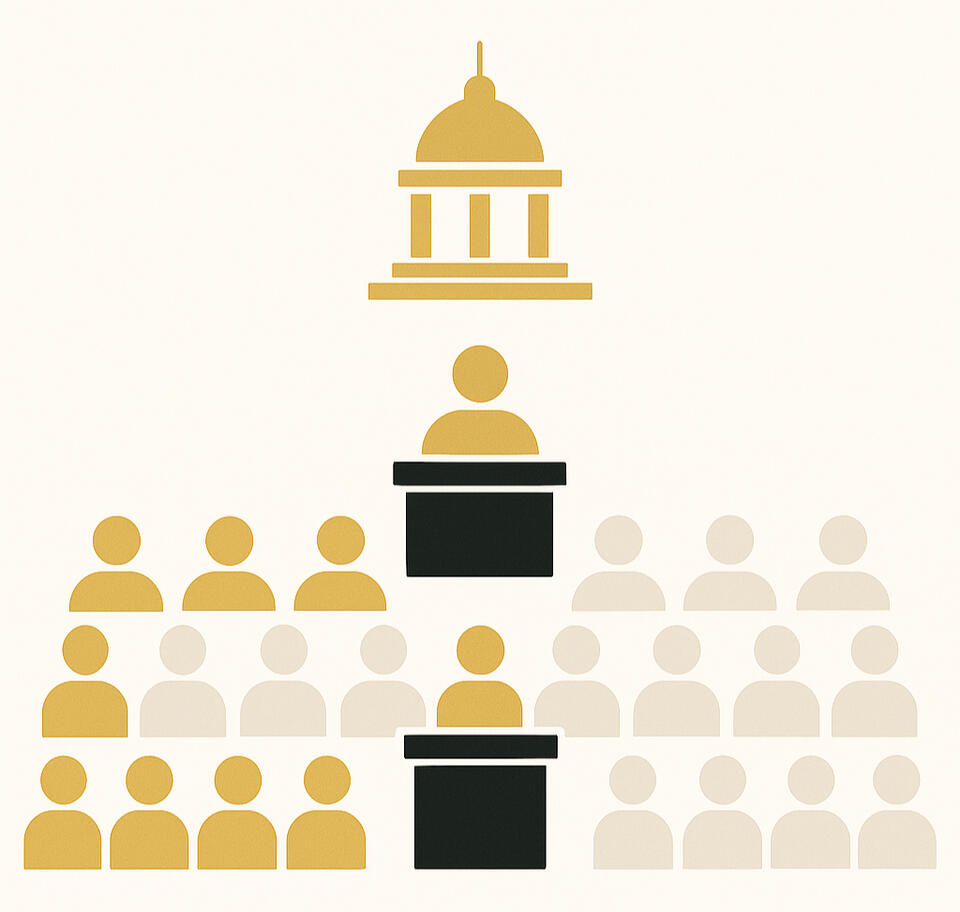

Establish Direct Democracy
Our Direct Democracy empowers citizens to review laws, veto policies, propose ideas, and trigger referendums, all while incentivizing them to grow their political knowledge, cultivate critical thinking and actively participate in civic action.
Replace Lobbying with Merit
Merit, not money, drives politics.Citizens earn Civic Coins based on merit by contributing verified public service, not through donations. These tokens allow people to support ideas, endorse contributors, and weigh in on decisions transparently and fairly.

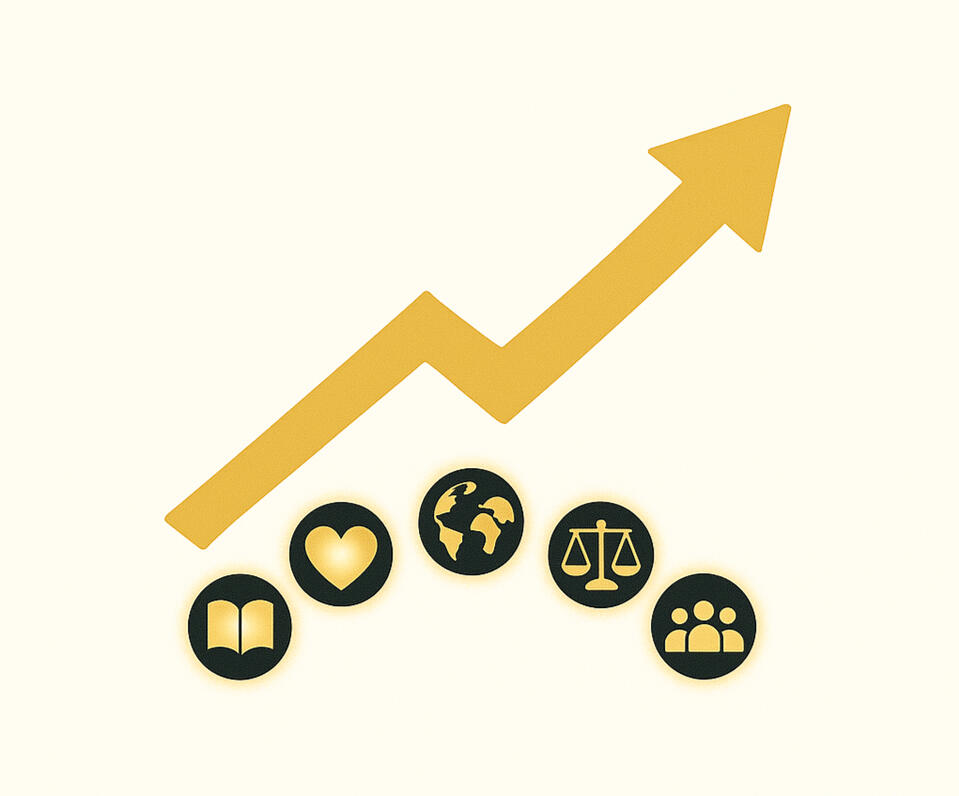
Introduce Eudaimonic Metrics
GDP is not enough.We measure progress by human quality of life such as health, education, sustainability, equity, and civic engagement. These metrics shape policy and investment, ensuring every decision serves real well-being.
An Economy That Serves All
We propose a fairer economy that works for everyone. With Equitable Taxation on extreme wealth, a Universal Basic Income to ensure freedom and dignity, free education and citizen led oversight of large corporations to align business with the public good.
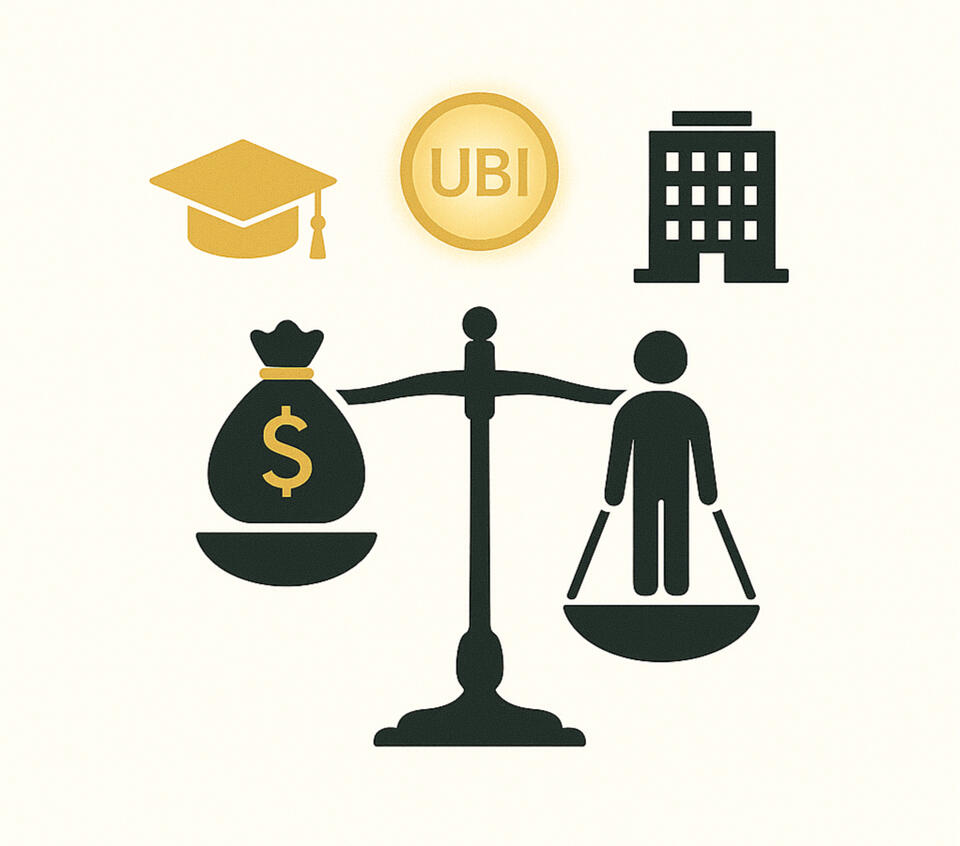
Like listening? Catch all the details in our podcast.
Discover the Eudaimonic App
Join the conversation, propose ideas, and help build a society that measures what truly matters.
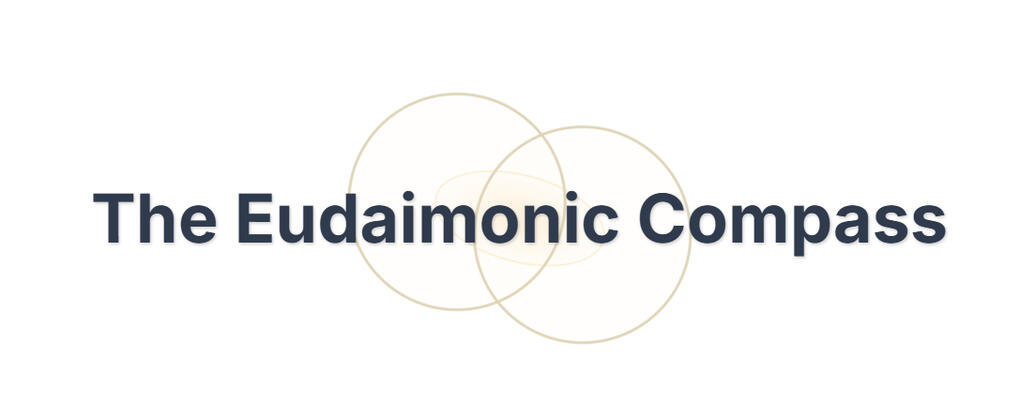

Ready to Make Your Voice Matter?Step up. Lead change.
Join us as a member or candidate.📬 Contact us at:
[email protected]
Be part of the movement for a wiser democracy.💡 Use the App – Vote, propose, and shape real policies📢 Share the Vision – Spread the word in your community and onlineTogether, let’s bring accountability and participation back to politics.

PASS: The Philocratic Assessment System of Suitability
• PASS is a system where citizens are randomly selected to serve in governance roles for one year, combining fairness and transparency through sortition.• Participants must also meet standards of competence, ethics, and collaboration.
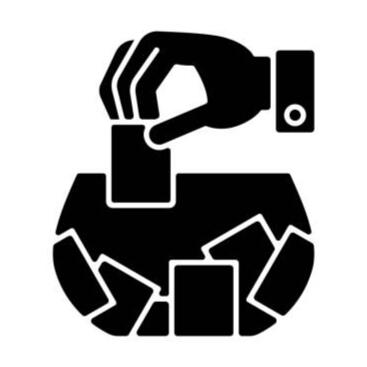

Citizens chosen by PASS serve in small teams called Nodes, each with four members filling distinct roles:• Academic Counselor: Provides research and expert knowledge• Mediator: Facilitates teamwork and respectful discussion• Engineer: Handles data and technology tools• High Juror: Oversees ethics and alignment with societal values
• Citizens must pass assessments of skills, ethics, and civic knowledge to join a Node, with ongoing reviews for accountability.• Nodes tackle real social issues based on the democratically chosen Consensus Priority List which is a democratically set list of society’s top priorities.


• Node initiatives who achieve demonstratable results which improve society earn time limited Civic Coins, used to vote, sponsor ideas, or endorse peers. Coins promote active, fair participation and cannot be hoarded or traded.• At term end, members are re-evaluated on performance, ethics, and engagement. High scorers may be re-elected, ensuring merit based leadership and regular renewal.
How It Works in Real Life
The Problem:
Right now, immigration decisions are often made by politicians who are influenced by corporate interests. The root cause? The focus isn’t on the actual needs of the country like jobs, housing, and services but rather on increasing profits for a few powerful elites.Our Solution:
Imagine instead a system where a node (or multiple nodes) composed four highly capable citizen are randomly selected and vetted for integrity. Their job is to decide how many newcomers our country can welcome, using real data: available housing, job openings, and the capacity of our services. They carefully weigh the common good, rather than any private agenda.The Difference:
For example, let’s say there’s a spike in job vacancies in healthcare and construction, but housing is tight. The nodes look at the numbers, listen to experts, and consult with communities. They agree on a balanced approach: bringing in enough people to fill critical jobs, but not so many that it drives up rent or strains services. Their decisions are made public, and they’re accountable to all of us, not to lobbyists or corporations.Result:
Immigration policy becomes fair, transparent, and focused on what our country really needs, not just what boosts someone’s bottom line.
FAQ
Q1: How are citizens selected for PASS?
Citizens are selected randomly through weighted sortition to ensure diversity in skills, demographics, and perspectives. Before joining, candidates undergo interviews and assessments to verify competence, ethics, and civic commitment.Q2: How long is the term, and what commitment is expected?
PASS members typically serve one year terms balancing consistent leadership with the need for regular turnover. The role is treated as a serious public duty with expected active participation in Node activities and governance tasks. Provisions exist for leaves of absence due to illness, family, or other emergencies.Q3: What training and support do PASS members receive?
Members get orientation, ongoing access to curated expert resources (The Civic Academy), and non-partisan research support. They also have access to AI assistance to help process complex data and policy impacts.Q4: How does PASS maintain transparency and accountability?
PASS operates openly with public audits, transparent scoring, and clear records of member contributions. A dynamic roster of pre-qualified substitutes (the Passive PASS Pool) ensures continuity. Members sign a civic contract pledging ethical service, and their performance is continuously reviewed.Q5: What compensation do PASS members receive?
PASS members receive stipends or salaries to remove financial barriers to participation. Employment protections ensure members can serve without losing job security, health benefits, or seniority.Q6: How are members re-elected or replaced?
At term end, members undergo a re-evaluation based on ethics, teamwork, engagement (including Civic Coin activity), and policy impact. High performers may be re-elected, while others rotate out. This promotes meritocratic leadership and avoids entrenched political classes.Q7: Can you give an example of PASS in action?
Imagine a Node focused on improving local education. The Academic Counselor researches best practices, the Mediator leads community forums, the Engineer uses data to model outcomes of proposed reforms, and the High Juror ensures policies align with equity and rights. After drafting a proposal, the Node presents it on the public platform for voting. Once adopted, Node members earn Civic Coins. One member’s term ends and their strong PASS score helps them get re-elected for a second term, ensuring continuity and expertise.
Direct Democracy
• Every new law, regulation, or major policy change is posted publicly on the platform.• Citizens have 100 days to review, debate, and gather signatures to veto it if needed.• If sufficient support is reached, the law goes to a public referendum for final approval or rejection.


• Any citizen can propose new laws or policies on the platform.• Proposals are open for discussion and must gain enough community support within 18 months.• If the support threshold is met, the proposal triggers a referendum vote.
• The platform offers expert analyses and moderated debates to help citizens make informed decisions.• All discussions, votes, and petition data are fully transparent and publicly accessible.
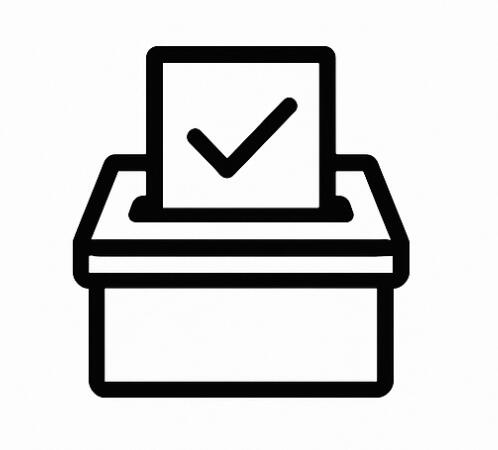
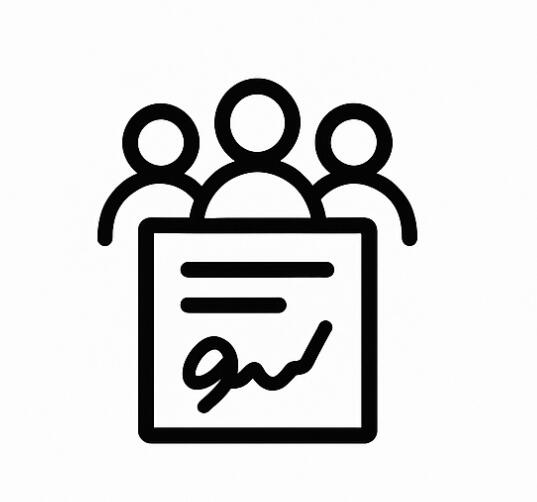
• Influence is earned through education, critical thinking, and positive civic action.• Citizens who actively contribute to community improvement gain greater influence, balancing participation with merit.
How It Works in Real Life
The Problem:
Recently, a senior government official proposed implementing complex and unnecessary healthcare regulations, claiming they would improve patient safety. This official, isolated in administrative offices far from healthcare settings, failed to consult with frontline healthcare workers or patients. The root cause? Decisions are often made by bureaucrats disconnected from the daily realities and practicalities faced by those directly impacted.Our Solution:With our direct democracy, proposals like these are not simply enforced without scrutiny. Citizens, including healthcare professionals and patients, can directly review, discuss, and vote on policy proposals using an accessible, transparent, and easy-to-use digital platform. The app provides details of each policy, expert analyses, community discussion forums, and an easy method for citizens to cast informed votes.The Difference:
Using the direct democracy app, healthcare workers and patients highlight the impractical nature of these regulations, noting how they would complicate procedures, increase paperwork, and reduce the quality of patient care. After thorough discussions and considerations facilitated by the app, citizens decisively reject these unnecessary regulations.Result:
The impractical bureaucratic regulations are vetoed by informed citizens through the app. Officials must revisit their policy, now guided by the clear, collective input of those most affected. This exemplifies a truly accountable, responsive, and citizen-driven democracy.
FAQ
Q1: How does the 100 day veto window work?
After a new law is posted on the platform, citizens have 100 days to review, debate, and collect signatures to veto it. If enough support is gathered (a set percentage of eligible voters), a referendum is triggered to approve or reject the law.Q2: Can anyone propose a new law?
Yes. Citizens can submit proposals that open an 18 month period for discussion and support gathering. If the proposal gains enough backing during this time, it advances to a referendum vote.Q3: How is the required support defined to trigger a referendum?
The threshold is proportional to the population, usually between 1% and 2% of eligible voters, making it accessible while preventing frivolous challenges.Q4: How does the platform encourage informed decision-making?
The system rewards citizens who educate themselves, engage critically, and actively improve their communities by granting them greater influence through Civic Coins.Q5: What happens if a law is vetoed?
If the referendum rejects a law, it is nullified or sent back for revision, ensuring laws reflect the people’s will.Q6: How is misuse or manipulation prevented?
The platform requires identity verification, transparency of petitions and votes, and applies merit based weighting to reduce uninformed or malicious influence.Q7: Does this system replace traditional elections?
No. It complements existing democratic institutions by shifting key decisions to active citizen participation, improving accountability and responsiveness.Q8: How can I get involved?
Start by using the app to vote, propose laws, and engage in debates. Share your ideas and connect with local organizers to help build the movement. Explore the App and experience direct democracy in action. Finally, contact us if you wish to become a member or represent your riding at [email protected]
Civic Coins

• Civic Coins are digital tokens earned through active, meaningful civic participation, not bought or sold.• They reward contributions like joining decision teams, sponsoring proposals, or engaging in civic education.
• Citizens earn Civic Coins by completing initiatives or demonstrating valuable engagement.• These tokens grant influence to vote, endorse ideas, or support skilled participants and expire if unused to ensure ongoing activity.


• Civic Coins shift influence from wealth to merit, rewarding knowledge, effort, and ethics rather than money or popularity.• This promotes fairness, collaboration, and accountability for a more engaged and responsible citizenry.
• Civic Coins create a meritocratic system where influence grows with learning and contribution.• They motivate citizens to stay informed and active, fostering a vibrant and fair democracy.

FAQ
Q1: How do I earn Civic Coins?
You earn Civic Coins by actively participating in governance: completing initiatives, voting, proposing ideas, or engaging in civic learning.Q2: Can Civic Coins be traded or saved?
No. Civic Coins are non-transferable and expire after a set time if unused to keep participation fresh and fair.Q3: How do Civic Coins affect my influence?
Civic Coins increase your voting power and ability to endorse proposals or peers. The system balances merit and influence; citizens with more merit have greater say, but the influence is capped to prevent overpowering others. Voting uses a quadratic model, so having more coins gives more power but with diminishing returns to avoid dominance.Q4: How does the system prevent abuse?
All Civic Coin transactions are transparent and recorded on a public ledger. Influence is earned, not bought, reducing corruption and favoritism.Q5: How are PASS members re-elected?
PASS members can only be re-elected if they exceed a threshold of Civic Coins by demonstrating transparent, meaningful civic duty that benefits society. This merit based reelection ensures competent, engaged leadership.
Eudaimonic Metrics
• Eudaimonic metrics measure real human well being beyond just economic growth, focusing on health, education, environment, happiness, and social progress.• Examples include the Human Development Index (HDI), Social Progress Index (SPI), and Gross National Happiness (GNH). Policies are judged on their impact on quality of life, not just GDP.


• Our system ties governance to these metrics, evaluating budgets, laws, and corporate actions based on their effects on well being.• For instance, a green infrastructure project is assessed by improvements in air quality and community health, not only economic output.
• Civic education and culture are vital for flourishing societies, promoting lifelong learning, critical thinking, and cultural participation.• Indicators like literacy, stress levels, and community engagement are tracked, with arts and media support included in policy goals.


• Continuous monitoring with AI tools ensures responsiveness, feeding real time well being data into governance.• Annual well being reports keep citizens informed and enable direct policy adjustments via the platform, fostering shared responsibility for quality of life improvements.
FAQ
Q1: What are eudaimonic metrics and why do they matter?
A1: Eudaimonic metrics measure overall human well being like health, education, happiness, and environmental quality, rather than just economic output. They help create policies that improve real quality of life sustainably.Q2: How do these metrics influence government decisions?
A2: Laws, budgets, and corporate actions are evaluated on how they affect these metrics. This shifts focus from short term profit or GDP to long term well being for society and the environment.Q3: How is citizen input included in using eudaimonic metrics?
A3: Citizens engage in policy decisions through the platform, guided by transparent data on well-being indicators. Real time monitoring allows the public to adjust policies as needed to maximize positive impact.Q4: How does culture and education factor in?
A4: Cultural participation, critical thinking, and education are part of what we measure and promote. This ensures people have access to meaningful learning and enriching experiences essential for a flourishing society.Q5: How is progress tracked and reported?
A5: National statistical agencies and AI tools gather ongoing data, producing regular well being reports for citizens. This transparency keeps everyone informed and accountable for societal progress.
Equitable Economy

Wealth Redistribution and Progressive Taxation:
Wealth and economic power have become heavily concentrated, undermining democracy. A fair society requires redistributing wealth and power through progressive taxation, targeting ultra high net worth individuals (UHNWIs) who hold fortunes many times larger than the average citizen’s wealth. This system ensures that excessive wealth contributes back to society, funding public services and reducing inequality without stifling economic vitality. Historical and modern data support the feasibility and fairness of such approaches.
Universal Basic Income and Social Welfare:
Revenue from progressive taxes will help fund a Universal Basic Income (UBI), providing all citizens with a financial safety net to reduce poverty and enable active civic participation. Alongside UBI, investments in universal healthcare, education, and affordable housing create a virtuous cycle, enhancing human development and long term economic growth. Past pilot programs show UBI improves well being, and careful implementation can maintain work incentives and economic stability.


Free Education and Lifelong Learning:
Education is critical for informed citizenry and innovation. Making post secondary education free removes financial barriers, enabling equal opportunities and fostering societal progress. A dedicated civic education platform promotes critical thinking and digital literacy, empowering citizens for meaningful democratic engagement. Funding this transition requires reallocation of existing resources, closing tax loopholes, and sustainable government investment, drawing lessons from successful international models.
Corporate Accountability and Participatory Economics:
Transforming capitalism requires holding corporations accountable not only to shareholders but to employees, communities, and the environment. This involves enforcing ESG standards, increasing transparency, promoting worker representation, and incentivizing social responsibility. Progressive corporate taxation and public private partnerships redirect profits toward social good. Preventing capital flight through international cooperation and stable policies ensures sustainable reform, while empowering the middle class through fair wages and labor rights fosters economic justice.

FAQ
Q1: How will wealth redistribution affect economic growth?
Progressive taxation and social investment have historically supported robust economic growth by increasing purchasing power for the majority and funding essential public services. Evidence shows that reducing extreme inequality enhances social cohesion and economic stability.Q2: How is Universal Basic Income funded?
UBI is primarily funded through progressive taxes on the wealthiest individuals and corporations, closing tax loopholes, and reallocating existing fragmented social support budgets to create a simpler, more effective system.Q3: Will free education reduce quality or accessibility for some groups?
No. The plan includes funding formulas tied to enrollment and performance metrics to ensure quality and equitable access. Investments will cover operational costs and additional services, including support for underrepresented groups.Q4: How will corporations be held accountable?
Through strengthened ESG regulations, transparent reporting, worker representation on boards, and progressive corporate taxes tied to social impact. Public and civic oversight mechanisms, including citizen auditing councils, will enforce compliance.Q5: What prevents wealthy individuals and corporations from moving assets or operations abroad?
A combination of international tax cooperation, capital controls, transparent and stable policies, and incentives for ethical reinvestment reduces incentives for capital flight while maintaining economic competitiveness.Q6: How does this system empower the middle class?
By redistributing residual corporate earnings and implementing living wage accords tied to civic incentives, the system raises wages and economic security for middle-class workers, fostering a more equitable economy.
This section is still under development
Meet the Civic Team

Harry Papageorgiou
Harry is a thinker who refuses to accept the world as it is. Part philosopher, part builder, and part educator, he operates where structure meets spirit and where governance gains meaning. As co-founder of the Civic Party, he blends political realism with bold, systemic reform. A lifelong student of history, psychology, and power, Harry has taught in underserved communities, led workshops on AI and ethics, and developed civic tools that treat citizens as co-creators, not consumers. At Civic, he leads strategy, narrative, and innovation, always questioning, always reaching deeper. He believes politics should feel more like friendship than war, and that democracy begins with the courage to imagine together.
Andreas Sarchosis
Andreas Sarchosis is a co-founder of the Civic Party. With a background in physics and a career in production reliability engineering, he combines analytical rigor with visionary thinking to help redesign democratic systems for the 21st century. His work bridges philosophy, civic ethics, and technology, aiming to empower citizens and cultivate a more just and participatory society. At Civic, Andreas focuses on policy design, strategic communication, and developing frameworks that place wisdom and merit at the heart of governance.


Evan Dole
With over six years of operations and sales experience in startups across Canada and the US, Evan Dole serves as the Chief Operating Officer of the Civic Party, where he brings a sharp operational mind and a passion for systems that empower citizens. As the founding Enterprise Account Executive at an industrial maintenance startup, he built a US sales process from scratch, fueling major market growth. He has also led the creation of recruitment pipelines and SOPs across three early stage ventures, giving him a strong foundation in scalable systems. At Civic, Evan applies this expertise to help build an infrastructure for participatory democracy by streamlining internal operations, supporting project delivery, and ensuring our civic innovation platform is both human-centered and built to last.
Join the Civic Team

Are you passionate about democracy, justice, and building a better future for all Canadians?Join the Civic Party as a member to help us become officially registered with Elections Canada and more importantly, you become part of a movement for meaningful change.📄 All it takes is filling out a short one page form to confirm your support.
✍️ No fees, no commitments, just your signature and belief in a better system.Download the Membership Form and send it back to us at [email protected]Together, we’re not just imagining a better future; we’re building it.
Do you believe in transparency, direct democracy, and a government that truly serves the people?We’re looking for passionate, individuals to represent the Civic Party in their local ridings. Whether you have political experience or are just deeply committed to making a difference, we welcome your voice and leadership.This is your chance to:Represent your community with integrityChampion a new era of democratic participationHelp shape a system where citizens and not lobbyists hold the power📍 We are currently seeking candidates for multiple ridings across Canada.
📩 Interested? Email us at [email protected] with a short introduction and the riding you're in.Together, we can reshape the future of Canadian politics, riding by riding.








